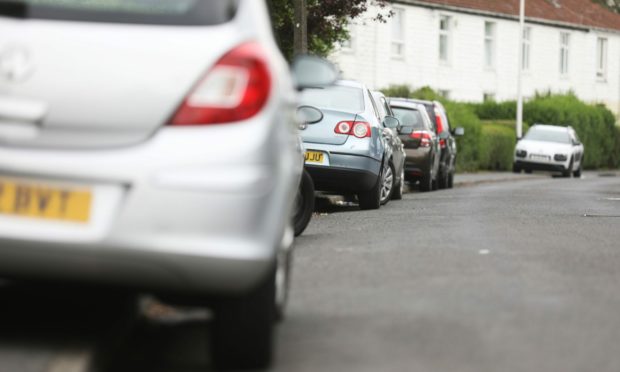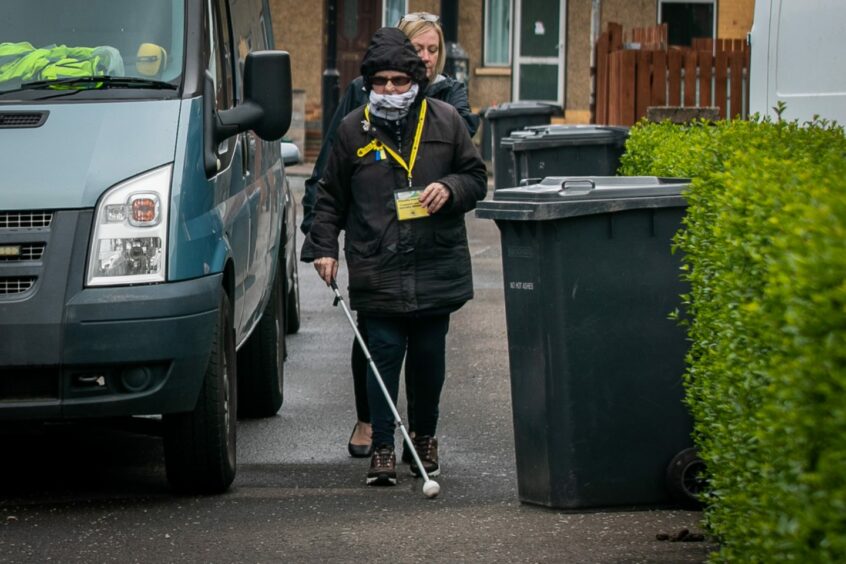Dundee City Council will use new powers to enforce a ban on pavement parking from December.
And by January, anyone flouting the rule could be hit with a £100 fine.
Motorists double parking and stopping in front of dropped kerbs could also face punishment.
The law has been on the books since 2021 but has been on pause ever since.
Councils in Tayside and Fife have now got the green light to set out how they will use the new powers, with some differences of approach across Scotland.
You can tell us what you think by taking part in our poll at the foot of this story.
The legislation says a car will be considered to be parked if it is stationary and has one or more wheels touching the pavement, regardless of whether the driver is present or the engine is running.
Here’s what Dundee, Fife, Perth & Kinross, and Angus councils are planning
Dundee City Council told The Courier it would introduce the rules in stages.
A spokesman said: “The council will begin enforcing the national legislation on a phased introduction approach when these powers come into force in December.”
But others are taking a different approach.
Fife Council service manager Susan Keenlyside said the local authority is consulting on the legislation and a report will be ready early next year.
Ms Keenlyside added: “The ban will not be enforced until this is completed and should approval be given it is likely that an initial soft, sensitive approach to enforcement of the legislation will be taken given the level of parking demand in many areas.”
Angus Council has yet to make a decision about how different footways will be managed. A report will be considered by councillors later this month.
The proposals will include exemptions for certain streets.
Perth and Kinross Council did not respond to repeated requests for comment on its plans.
Pavement parking a ‘nuisance’
Charities say pavement parking poses a number of issues for disabled people.
Niall Foley, lead external affairs manager at Guide Dogs Scotland, said: “Parking on pavements is a nuisance for everyone, but potentially dangerous if you are a wheelchair user forced onto the road, pushing a buggy, or have sight loss and can’t see traffic coming towards you.
“When cars block the way, it undermines the confidence of people with a vision impairment to get out and about independently.”
The only option is walk on the road.
– Alison Rae, Dundee Blind and Partially Sighted Society.
Alison Rae, chief executive officer of Dundee Blind and Partially Sighted Society, said that there was a real problem in the city.
“When you have a visual impairment, just walking along the pavement can be a minefield.
“Our members’ experience is that pavement parking is very much a problem in Dundee, especially with shops and cafes using the pavement when unloading their vehicles.
“The only option is walk on the road.”
One partially sighted Dundee woman told last year how pavement parking in the city forced her to “take her chances” on the road.
Rose, 67, said she struggled to get from the bus stop to her home because of obstacles.
“I have a job when the cars are there. I’ve got to walk on the road.
“The cars are beeping at me.”
Tell us what you think in our readers’ poll.













Conversation